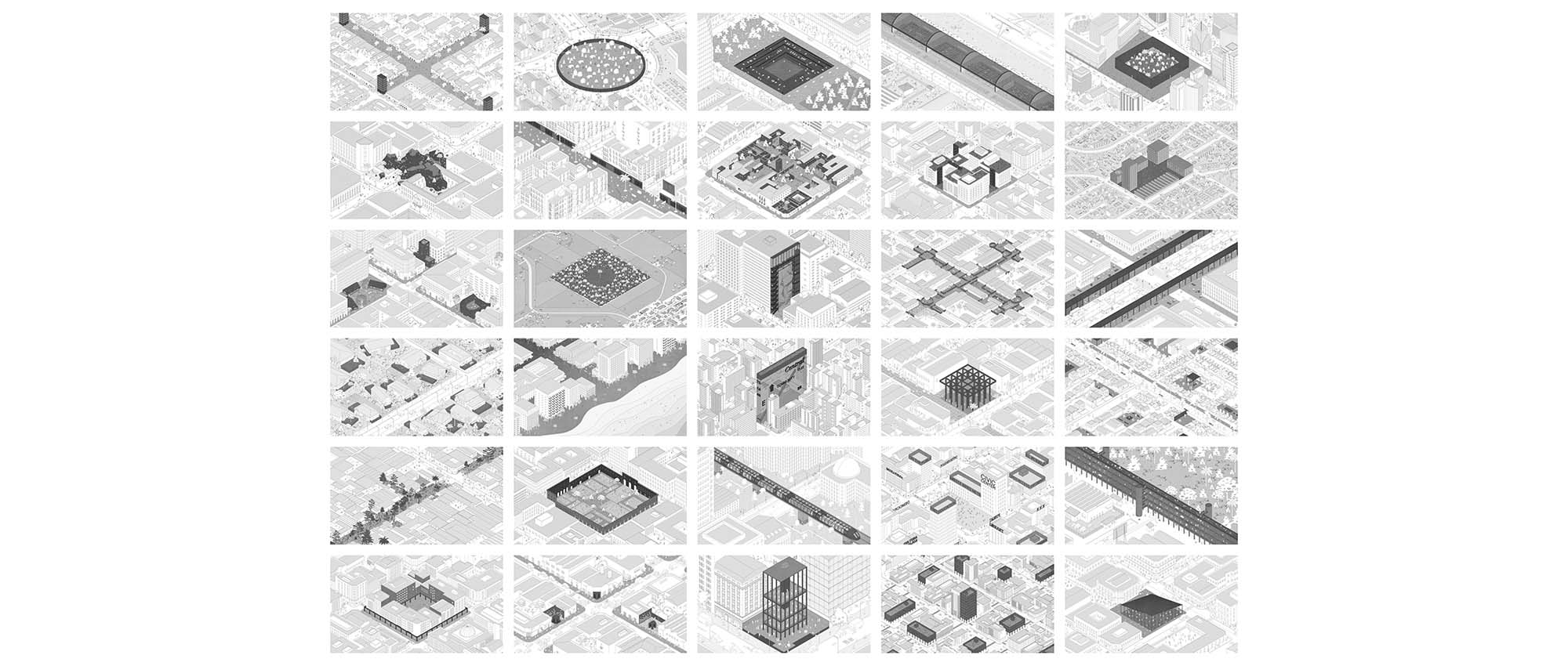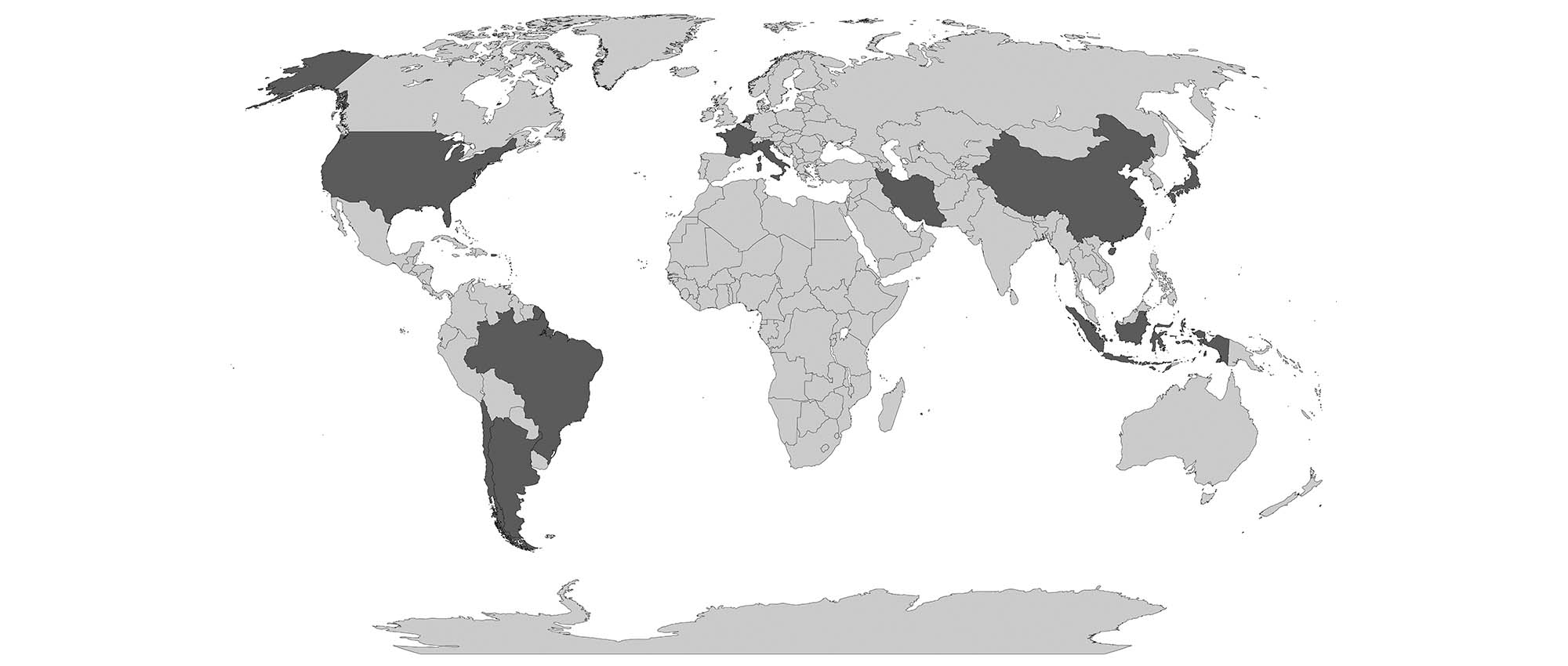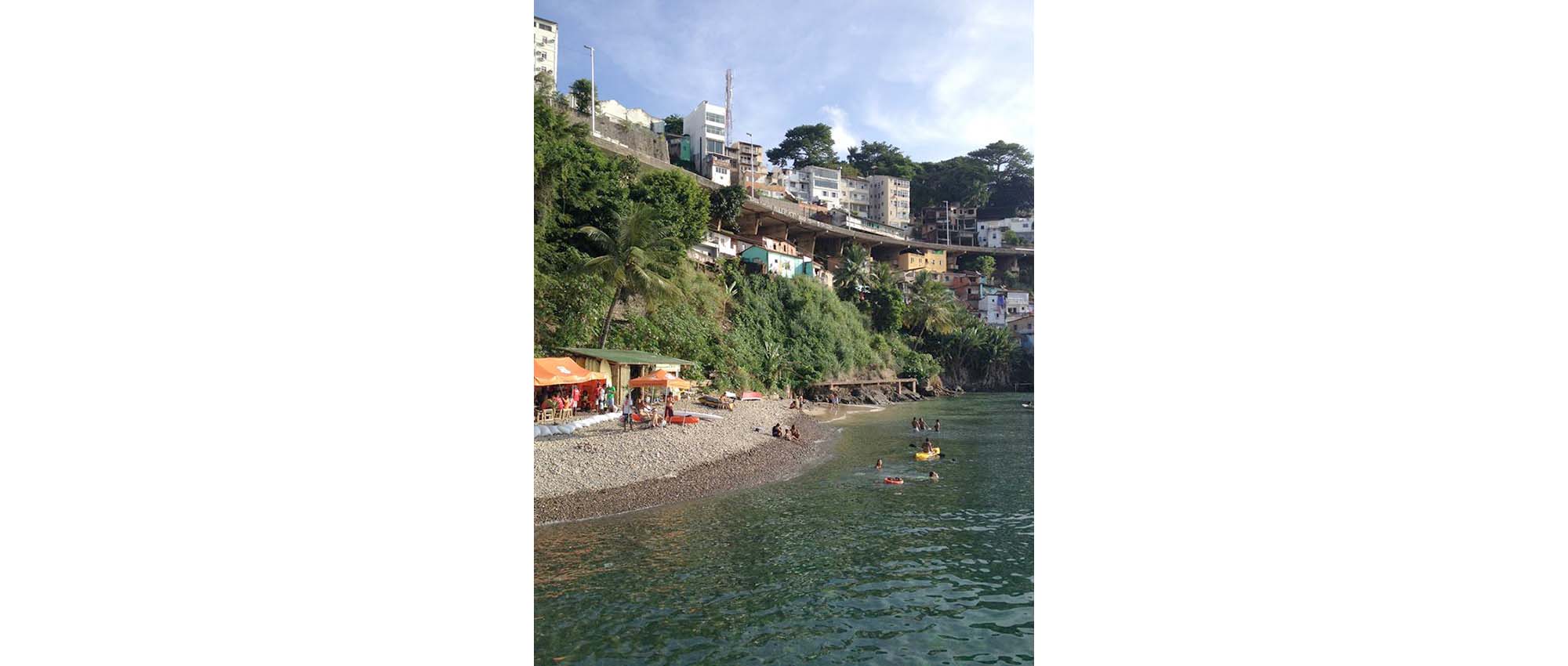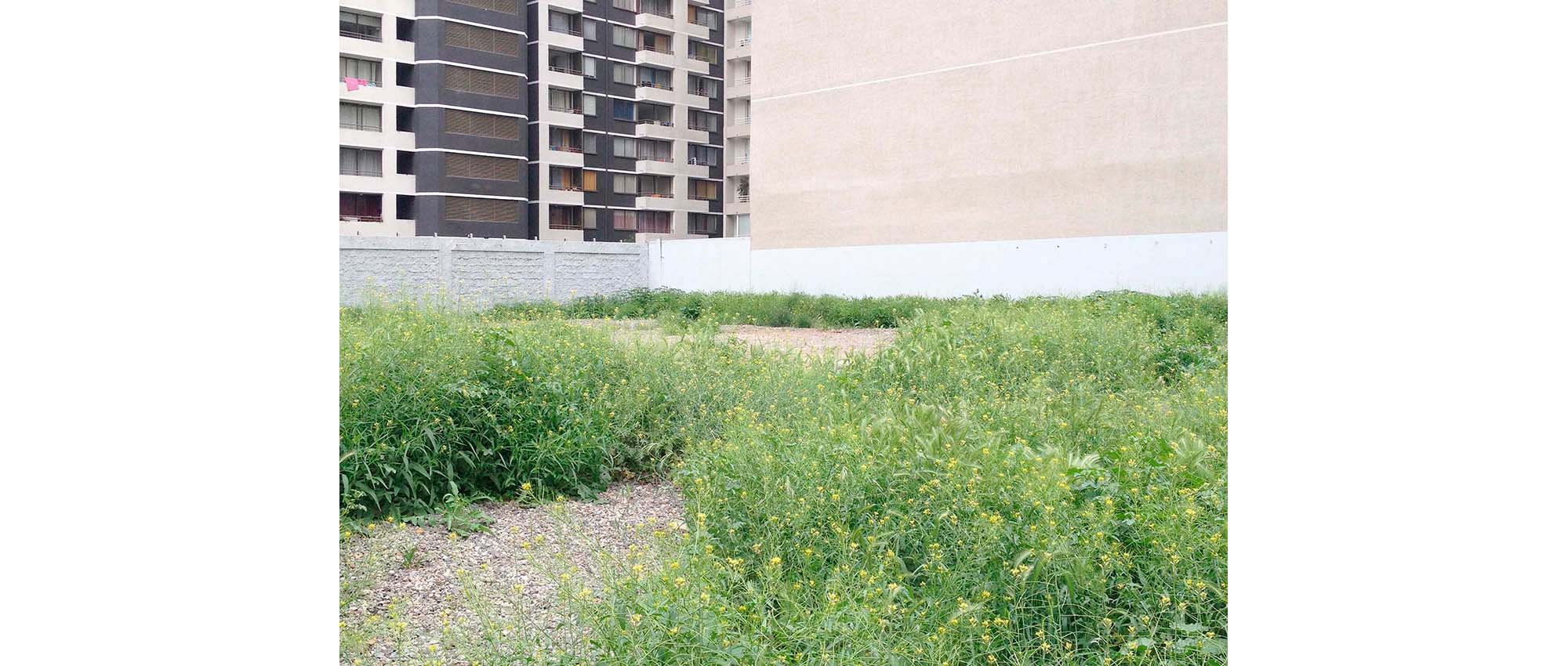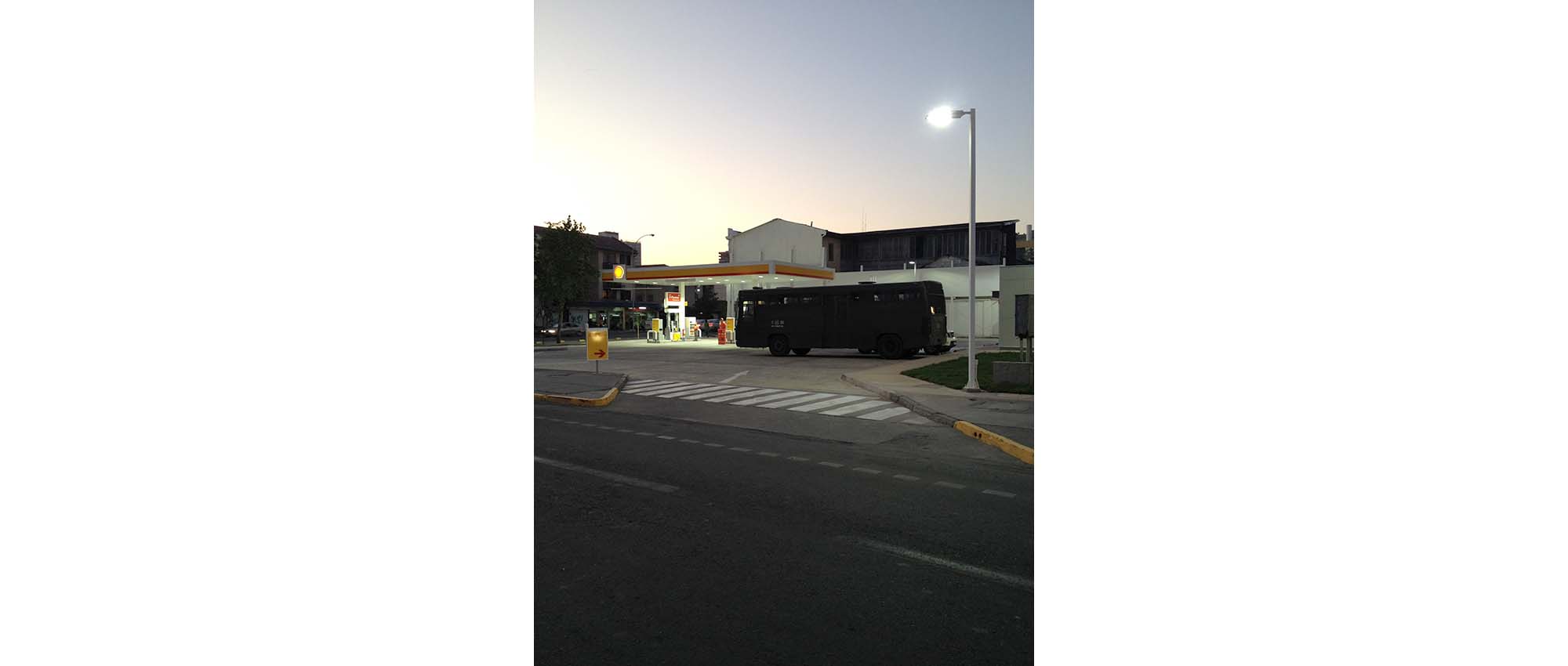Lugares Comunes | Common Places
2012 - 2016 | Collaborative research initiated by Plan Común | Go to index
ES - Independiente del pragmatismo al que algunos aspiran, es imposible despojar nuestras ciudades de ideología. En el caso específico de Chile, vivimos bajo un modelo neoliberal, ante el cual estamos obligados a tomar posición –a favor o en contra–.
Esta condición genérica encuentra su especificidad de acuerdo al contexto cultural del cual estemos hablando. Las sociedades en todo el mundo se movilizan frente a las consecuencias del sistema: el Movimiento Estudiantil Chileno del 2011, la Primavera Árabe o la situación actual en Greciason solo la punta del iceberg de las inconsistencias de nuestros modelos de crecimiento y gestión del desarrollo. Existe una reivindicación de la ciudadanía para recuperar la esfera pública.
El derecho a la ciudad es el frente desde el que debemos luchar. La ciudad contemporanea parece abandonada a los vaivenes del mercado y descuidada por la arquitectura contemporánea. En consecuencia, tener una posición respecto a la confrontación entre el espacio público y lo privado es un fenómeno propio de la modernidad, clave para entender el papel de la arquitectura hoy. Apelamos a la capacidad transformadora y estructural de la arquitectura, la que proyectada conscientemente puede corregir contextos, proponer relaciones certeras y convocar nuevas formas de habitar. Common Places es una serie actualmente en curso de 50 estrategias formales, originales e inéditas, que tienen como objetivo maximizar el espacio público y que serán llevadas a cabo por un equipo de arquitectos de todo el mundo. Estos proyectos se localizan en nuestras ciudades y parten de la base de que es necesario romper huevos y verificar la vigencia de los modelos actuales –sean ideológicos, económicos y/o normativos– para consolidar espacios públicos nuevos y fértiles a la altura de las expectativas.
EN - Regardless of the usual aspirations of pragmatism that many of us may have, it is impossible to understand our citieswithout ideology. In the specific context of Chile, we live under a neoliberal model and we have to take a position –either in favor of or against it–.
The generic condition we are referring to finds its own specificity according to the context where it is displayed. For instance, societies around the world are now mobilized against the consequences of the system: the Chilean Student Movement of 2011, the Arab Spring or the current situation in Greece are just the tip of the iceberg of a reaction against the many inconsistencies of our models of development and administration of wealth. Citizens have aimed at reclaiming the public sphere.
As architects, me must choose the right to the city as our front in this fight. The city, the war cry of modern architecture, is now controlled by the ups and downs of market economy, and it has also been discarded by contemporary architecture. As a result, having a position towards the confrontation between public space and the private realm is a fundamental question of modernity today, a key to understand the current role of architecture. We believe in the transforming and transcendental power of architecture. If used properly, it can change contexts, propose precise relationships between various elements and produce new ways to inhabit the world. Common Places is an ongoing series of 50 original and exclusive formal strategies, aiming at maximizing public space and conducted by an international team of architects. This is a set of architecture projects for our cities, prototypes questioning the validity of established ideological and/or normative models, reproducing the new and fertile public spaces demanded by the citizenship.
Contributors : Felipe De Ferrari (CL), Diego Grass (CL), Kim Courrèges (FR), Thomas Batzenschlager (FR), Marcelo Cox (CL), José Lemaitre (CL), Pedro Correa (CL), Pedro Hoffmann (CL), Ignacio García (CL), Arturo Scheidegger (CL), Eduardo Perez (CL), Mathias Klenner (CL), Ignacio Saavedra (CL), Ignacio Rivas (CL), Javiera Jadue (CL), Paula Livingstone (CL), Felipe Grallert (CL), Osvaldo Larraín (CL), Eduardo Corales (CL), Cristián Valenzuela (CL), Tomás Tironi (CL), Christian Bartlau (CL), Cristóbal Amunátegui (CL), Alejandro Valdés (CL), Alejandra Celedón (CL), Luca Magagni (IT), Cruz García (PR/CR), Nathalie Frankowski (FR/CR), Ciro Miguel (BR), Bruna Canepa (BR), Hamed Khosravi (IR), Miguel Ángel Gonzalez Merlo (PY), Sebastian Blanco (PY), Leandro Cappetto (AR), Danny Wicaksono (ID), Kotaro Shimada (JP), Costanza Zeni (IT), Oliver Burch (CH), Giacomo Ardesio (IT), Alessandro Bonizzoni (IT), Antonio Buonsante (IT), Nicola Campri (IT), Veronica Caprino (IT), Federico Casati (IT), Claudia Mainardi (IT), Marco Taccagni (IT), Jules Salmon (FR), Miles Gertler (USA), Erica Chladová (USA), Robert van der Pol (NL). Workshops : Alessandra Dal Mos (IT) Sebastian Paredes (CL) Camila Reyes (CL) Luc Armau (FR) Paulo von Pozer (BR) Hayako Oba (JP) Joao Meirelles (BR) Nadezhda Mendes da Rocha (BR) Frederico Vergueiro (BR), Leticia Tamisari (BR)
